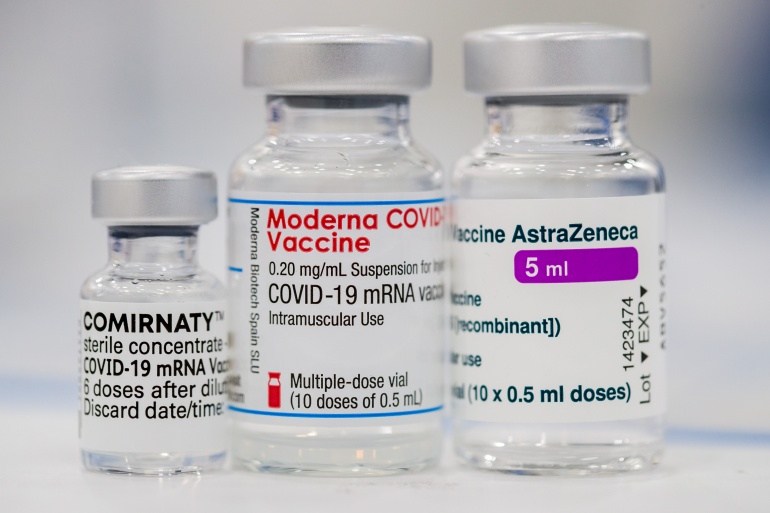People who receive a second shot of the Pfizer/BioNTech vaccine after they got a first dose of AstraZeneca's jab develop better protection against the coronavirus than after getting a second AstraZeneca dose, new research shows.
The study, conducted by researchers from the German University of Saarland, followed 250 people, some of whom were fully vaccinated with AstraZeneca or Pfizer, and others who received a combination. The interval between the first and second shot was nine to twelve weeks.
"We not only examined how many antibodies they had formed against the coronavirus in the vaccinated people, but we also determined the strength of the so-called neutralising antibodies," said Professor Martina Sester from the University of Saarland.
"This tells us how well the antibodies prevent the virus from entering the cells," she stated, adding that 10 times more antibodies were found in the blood after a double Pfizer vaccination and a combination shot than after two AstraZeneca shots.
Related News
- First Moderna, then Pfizer? Belgium studies if first and second shot can be different
- WHO does not (yet) recommend 'vaccine switch' after first dose
- Commission approves Pfizer vaccine for children aged 12 and over
The combination gave even better results in terms of neutralising antibodies than a double shot with Pfizer, according to the researchers.
Finally, getting both shots with Pfizer, or a combination of AstraZeneca and Pfizer, leads to a stronger reaction of the so-called t-cells, which help to produce antibodies and prevent a severe disease progression after a Covid infection.
In several European countries, a first shot of AstraZeneca is currently already followed a few weeks later by a second shot with Pfizer or Moderna in some cases.
In France, the decision to switch to a different vaccine after a first shot of AstraZeneca was made in early April, after reports that the jab could be linked to rare blood clots.
At that stage, however, this strategy of mixing the vaccines had not been scientifically investigated, but the results of the first studies - which have not yet been peer-reviewed - now state that it leads to an excellent immune response, and does not cause any severe side effects.
In Belgium, someone who received their first shot of AstraZeneca's vaccine will also receive a second shot of the same jab - as recommended by the European Medicines Agency (EMA).
While changing course now might be possible, it would also be "a logistical nightmare," according to professor of Vaccinology Corinne Vandermeulen (KU Leuven).
"These studies are particularly important for the third dose," she told De Standaard. "Now we know that we probably do not need to take into account which vaccine someone got first."

